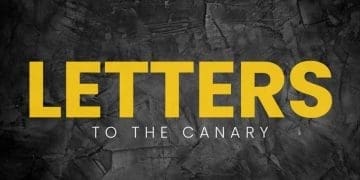The Department for Work and Pensions (DWP) has faced mounting criticism over its claims about Universal Credit.
Universal Credit: in the spotlight
On Monday 7 May, Channel 4‘s Dispatches programme turned its attention to Universal Credit – the new welfare payment from the DWP. It featured stories of people who’ve suffered hardship due to the benefit. As HuffPost reported, these included taxi driver Robert Petch. Because he’s self-employed, any benefits he received previously would now fall under Universal Credit. He told the programme:
The job centre advised me to quit self-employment and they said that I’d be financially better off if I wasn’t working… We are now homeless, the children are living with my parents, the family has split up completely. We did have a dog, which was taken into foster care and since has been re-homed.
Universal Credit as a system … it’s just taken my life, ripped it apart and flushed it down the toilet.
But Dispatches also revealed that two out of three DWP staff members think the Universal Credit rollout should be paused. One whistleblower told the programme:
A lot of [claimants] can miss their payments… It could mean that they won’t be able to eat for another couple of days, it’s very tough on them.
The DWP responds
The DWP took to Twitter to try and refute Dispatches‘ claims:





An unimpressed Twitter
Unsurprisingly, the DWP left many people less than impressed:
You can put out as many statements as you want
They are empty wordsPeople' s experience with Universal Credit is the living reality of your policy & procedure
And it needs scrapping before more people are harmed by Tory policies attacking the poorest in society
— Albert Trigg (@alberttrigg) May 7, 2018
Campaign group Refuted mocked up its own version of the tweets:
"Thousands of people on Universal Credit are having 40%
of their benefit deducted to pay back outstanding debts."https://t.co/SpAvNnu1ldFacts not parody pic.twitter.com/arVsJAz64U
— refuted (@refuted) May 7, 2018
"Severely disabled people will collectively lose £2bn* in disability premium payments"
*2 thousand million pounds
Facts not parody https://t.co/SheIyLwa3W @Dis_PPL_Protest @DrFrancesRyan @pcs_union pic.twitter.com/CPleueOcv0
— refuted (@refuted) May 7, 2018
This social media user had their own ideas about Universal Credit:
From before it’s creation #UC was set up to force people to give up claiming. To take any low paid dead end job. So the safety net of #State responsibility is removed. But the #State has to supplement poor wages/high rents – #Tories #Unworkable Shite
— Magster (@Magstermoments1) May 7, 2018
While this person said Universal Credit was causing “uproar”:
I work in mental health, UC is causing uproar, DLA cancelled all over, housing benefit not being paid leading to people being evicted and found by the local authority intentionally homeless, some of society’s most vulnerable groups are ending up street homeless #ch4 #Dispatches https://t.co/qgrEyiXCT0
— kay J anon (@SW4MH) May 7, 2018
A search of the Dispatches hashtag shows the level of anger at the department and Universal Credit.
Overarching concerns
Campaign group Disabled People Against Cuts (DPAC) has extensively detailed its concerns over Universal Credit. These include:
- Up to one million low paid workers being subject to the same welfare and sanctions regime that disabled people have been living with.
- The government administering Universal Credit wholly online, when around 2.9 million disabled people (22%) have never used the internet.
- The DWP ignoring GPs’ sick notes under Universal Credit. Instead, all sick and disabled claimants will have Health and Work Conversations. These are mandatory work-focused interviews to assess “what they [claimants] can do rather than what they cannot”.
- An increase in the sanctions regime, linked to the Health and Work Conversations.
- Some disabled people and couples losing up to £5,195 a year due to changes to entitlements.
- The effect of the benefit on people living with mental health issues – specifically possible forced therapy.
Despite the concerns of DPAC and others, the government has barely made any concessions on Universal Credit. It seems the DWP, in the face of public criticism, is still in blanket denial over the chaos surrounding its flagship reform. Time will tell as to whether Universal Credit will ever be consigned to the dustbin of history. But currently, it’s making countless people’s lives a nightmare.
Get Involved!
– Support DPAC and Black Triangle, campaigning for disabled people’s rights.
– Read The Canary‘s full analysis of Universal Credit.
Featured image via DPAC and UK government – Wikimedia









